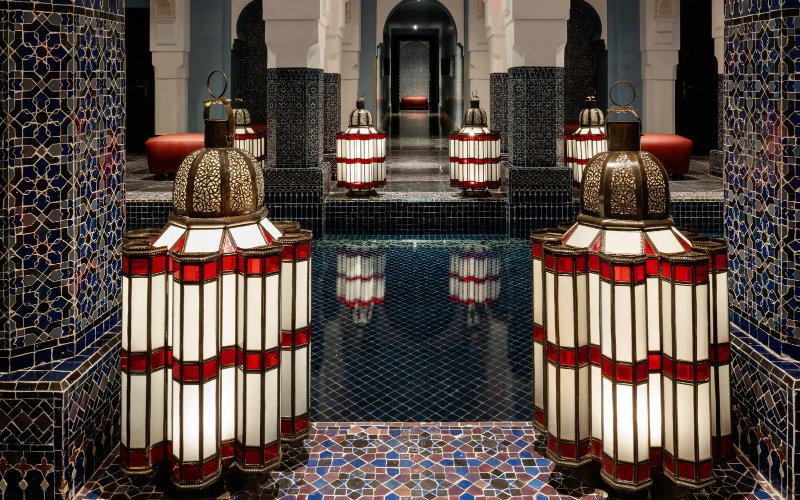North African Nations Clash Over UNESCO Recognition of Zellige Tile Art

Morocco, Algeria and Tunisia are disputing the paternity of zellige, the ornamental ceramic tile. Among these three North African countries, who really invented zellige?
Algeria tried to dribble past Morocco and Tunisia by filing on April 18 a file entitled "Art of architectural ornamentation in zellige: knowledge and skills" for its inscription on the Representative List of the Intangible Cultural Heritage of Humanity of UNESCO. An initiative that has provoked strong reactions in Morocco and Tunisia, who also claim the art of zellige. To recall, Morocco had filed a file with the World Intellectual Property Organization (WIPO) in 2012 to appropriate the ceramic tile.
But in reality, who invented zellige? It is difficult to answer the question. According to Jeune Afrique, this art would be derived from mosaic tessellae, introduced by the Phoenicians during the Middle Ages, a period when Morocco, Algeria and Tunisia were under the influence of the Andalusians and the Turks. "The Mediterranean is a very ancient crucible of exchanges. For proof, obsidian (a volcanic mineral) that came from the Sicilian islands, has been found on the prehistoric sites of the Maghreb countries. It attests to exchanges, particularly with the islands of the central Mediterranean, in remote times," says a researcher from the Tunisian National Heritage Institute (INP), quoted by the magazine.
Ceramologists unanimously recognize Morocco and Tunisia’s legitimacy to claim the art of zellige. But in a context of unilateral rupture of diplomatic relations by Algeria with Morocco and tensions between Rabat and Tunis, an agreement between the three countries on this heritage issue for a collective claim is almost impossible. "Abusive appropriation is almost like annexation. We deny the contribution of other countries, we rob them and behave like starving identities, whose intangible heritage is one of the markers," denounces a Tunisian craftsman.
Intangible heritage is a source of rivalry and disagreement between countries. It transcends political issues. In this matter, UNESCO calls for collective claims. In 2018, Algeria had tried to appropriate couscous. Faced with the opposition of its neighbors, it finally filed a file supported by all the Maghreb countries, including Mauritania and Libya, in 2020. "Sicily and Sardinia could also have claimed a share of ownership of couscous," a dish consumed throughout the Mediterranean basin, informs the Sicilian chef Antonino Grammatico, quoted by Jeune Afrique.
Related Articles
-

Moroccan Cities Clash: Wedding Halls Spark Noise Pollution Crisis and Human Rights Debate
4 September 2025
-

Rif Protest Leader Zefzafi Breaks Silence: Patriotic Speech at Father’s Funeral Stirs Al Hoceima
4 September 2025
-

Illegal Beach Sand Mining Near Tangier Sparks Environmental and Economic Outcry
4 September 2025
-

Surveillance Footage Exposes Tourist Robbery Ring in Tangier Court Drama
4 September 2025
-

Rif Protest Icon’s Father Dies: Ahmed Zefzafi’s Passing Reignites Hirak Movement Debate
3 September 2025